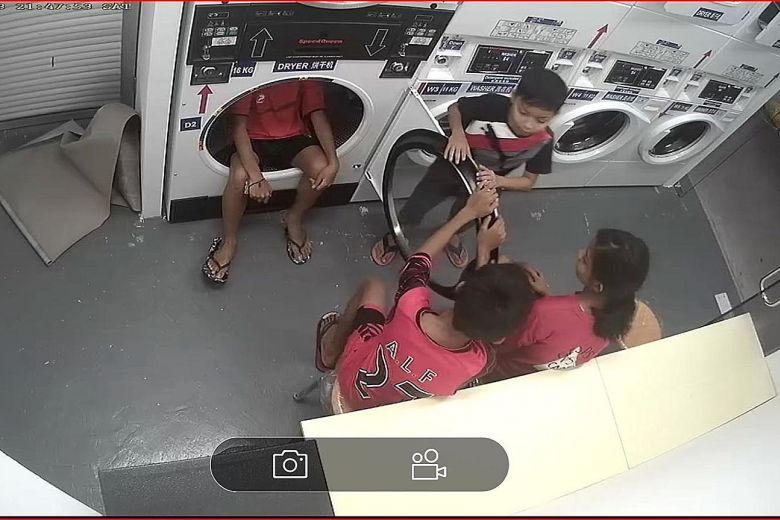SINGAPORE - Singaporean engineer Andy Goh has stopped saying hello to some neighbours in his condominium.
The mood in the 596-apartment Cashew Heights complex is "tense and stressed" after an initiative late last year to offer it for collective sale to a property developer, said Goh, 49.
A firm opponent of the deal, worth at least $1.88 billion, he feels outnumbered by owners who want to cash out. Recalling a meeting in his condominium last month, Goh, who worries the sale price won't allow him to buy a new home of comparable size, said his dissenting voice was drowned out by the other owners.
Singapore has seen a frenzy of so-called en-bloc deals over the last two years in the redevelopment market, a phenomenon that has made some Singaporeans millionaires, inspired hit television shows and turned neighbours into enemies.
David Wong, a member of Cashew Heights' pro-en bloc committee, said owners can sell their apartments for at least double the price in a collective sale compared with individually.
"I think the financial reason surpasses the sentimental reasons," he said, adding that those who did not want to sell have a vote. Under Singapore law, 80 per cent of the owners in an older development need to approve the sale before tender.
The drama of Singapore's property market has been captured in two television shows called "En Bloc." In one episode, an anti-en-bloc owner's property is vandalized, while a letter spreads rumours of bad feng shui in another episode.
More than a combined $8 billion worth of such deals were signed in 2017 - the highest in a decade amid a nascent recovery in the housing market.
Redevelopment is seen as key to optimizing land use in the city-state, home to 5.6 million people in about 700 square kilometers.
EN-BLOC FATIGUE
But the pace of redevelopment sales has started to show signs of slowing, with recent government measures helping dampen the euphoria, including an increase in stamp duty for home purchases of more than $1 million.
Traffic impact studies are now required to ensure redevelopment will not trigger congestion. The development levy for enhancing sites or building bigger projects on them was raised by an average of 22.8 per cent - the biggest increase in a decade.
"I think if you look, definitely the window is closing a bit," said Desmond Sim, research head for Singapore and Southeast Asia at real estate services firm CBRE.
He said recent collective sales had gone through at the minimum asking prices, developers sated after last year's buying spree and sellers' expectations sky-high.
"The exuberance of putting in high premiums has gone," he said.
The average premium above asking price has fallen to 2.9 per cent this year from 10 per cent in 2017, according to an analysis using data through late February by real estate services firm Cushman and Wakefield.
Aggressive land bids prompted the central bank in November to warn of "excessive exuberance" in the property market, urging developers to factor in new projects slated to open.
Derek Tan and Rachel Tan, equity research analysts at Singapore's largest lender, DBS, said last month there appeared to be "a bit of fatigue" in the en bloc market, citing recent deals' relatively low pricing.
"The fact that most of the sites have also been awarded at reserve price levels, rather than a premium, may indicate that developers are turning more choosy in adding to their land bank and becoming more cautious in their pricing strategy," they wrote.
$3.2 MILLION AND DOWNSIZING
Those transactions included the $728 million sale of the Pearl Bank Apartments, the tallest residential structure when it was completed in 1976, to CapitaLand through private negotiations after an unsuccessful public tender.
"The asking price from the owners in all these recent en blocs is getting higher and higher. There must be a tipping point," said Ronald Tay, chief executive at CapitaLand Singapore.
Developers may also be opting more for the government land sales (GLS) programme rather than en-bloc deals, which can take more than a year to close.
"I would say that we definitely have a slight preference at this stage toward GLS because the turnaround is faster," said Sherman Kwek, chief executive officer at City Developments, although he did not rule out more en bloc deals.
Cushman estimates that Singapore developers have about S$18.9 billion available for more near-term land acquisitions.
Analysts say developers have been building smaller apartments to keep prices palatable to buyers, even as land costs rise. Consultancy JLL estimates the median size of apartments sold directly by developers fell to 69 square meters in 2016 from 111 square meters in 2009.
Goh will receive $3.2 million for his three-bedroom apartment, where he lives with his wife and four children, if the sale of his development, built in the early '90s, goes ahead.
He has been trying band together with other owners who oppose the sale, and laments that no new condominium estates will match the space or open layout that he likes about his neighborhood.
"Even if it is 'en bloced' at $3.2 million, I couldn't get a unit that is equivalent in size," he said.






























